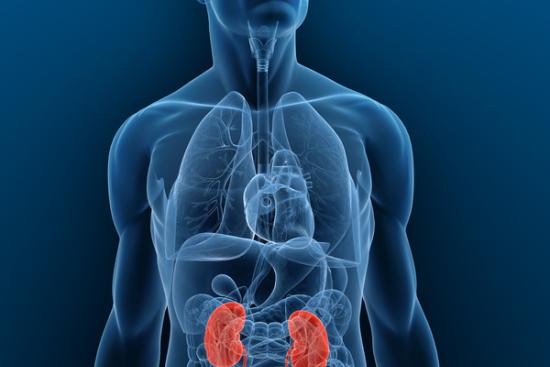A true medical breakthrough, kidney transplantation has revolutionized the treatment of kidney failure by providing an alternative to chronic dialysis. In this procedure, a healthy kidney from an altruistic donor is implanted to restore the vital functions of the failing kidney.
Kidney transplantation offers patients with end-stage renal disease a new lease on life, significantly improving their autonomy and quality of life.
- Patients with renal failure, polycystic disease
- Rejection of the organ
- Bleeding
- Infection
- Pain
- Kidney Dialysis
- The operation lasts between 2 and 3 hours
- Total recovery 8 to 12 weeks after the operation
- 97%
Kidney transplant in Turkey : Costs & hospitals
Do you suffer kidney disease? Benefit from a free online consultation with our top specialists. Contact us now for a personalized quote and the most competitive costs for your surgery in Istanbul, Ankara or Izmir. We'll put you in touch with the best medical facilities and negotiate the best terms for you.
Countries | Kidney transplant prices |
United States of America | 108,35 $ |
France | 86,68 $ |
Spain | 67,18 $ |
Turkey (Turquie santé) | From 18 900 $ |
Best Clinics with Verified Reviews

- Multispecialized hospital
- 7 operating rooms
- Capacity é of 170 beds
Indications for kidney transplant
Kidney transplantation is an important therapeutic option for people with severe and irreversible kidney failure. It is generally indicated when the kidneys are no longer able to perform their vital functions, such as blood purification and hydromineral balance.
The main indications for kidney transplantation include:
- End-stage renal disease (ESRD): When the kidneys no longer function adequately to maintain essential body functions, such as waste elimination and fluid and electrolyte regulation.
- Progressive chronic kidney disease: Advanced kidney diseases such as diabetic nephropathy, immunoglobulin A (IgA) nephropathy, glomerulonephritis, polycystic kidney disease, renal amyloidosis, and other kidney diseases that may progress to end-stage renal disease.
- Dialysis failure: When dialysis, a renal replacement therapy, is no longer sufficient to maintain a satisfactory quality of life or is associated with severe complications, kidney transplantation may be considered.
Kidney transplantation process (for foreigners and locals) in Turkey
Kidney transplantation in Turkey is a complex medical procedure that requires strict coordination between the nephrologist, the surgical team, and the two parties involved: the donor and the recipient.
The donor undergoes a thorough evaluation process that includes a series of rigorous medical tests. These tests are designed to determine the donor's immunological compatibility with the recipient and to ensure that the donor is in optimal health. Once the donor's compatibility is confirmed, surgery is scheduled to remove the kidney.
At the same time, the recipient undergoes pre-transplant immunosuppressive therapy to prepare the body to accept the new kidney and minimize the risk of rejection.
During the transplant operation, the donor's blood vessels and urinary tract are surgically connected to the recipient's. Careful postoperative monitoring is then performed to ensure that the transplanted kidney is functioning properly.
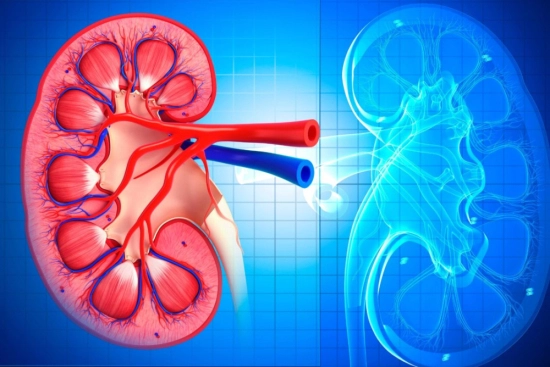
Donor and recipient selection criteria
The success of a kidney transplant is closely linked to the compatibility of the donor and recipient. Family members are often preferred as living donors, as genetic links increase the chances of immunological compatibility and thus reduce the risk of graft rejection.
However, organs can also be donated from brain-dead people, provided they have given their consent or their family has given their permission.
Any healthy person over the age of 18 can become an organ donor. However, certain medical conditions, such as cancer, cardiovascular disease, liver disease, and certain infections, may exclude a person from donating.
Careful selection of donors and recipients is essential to ensure the success of a transplant. As a result of these medical advances, more and more lives are being saved and improved through kidney transplantation.
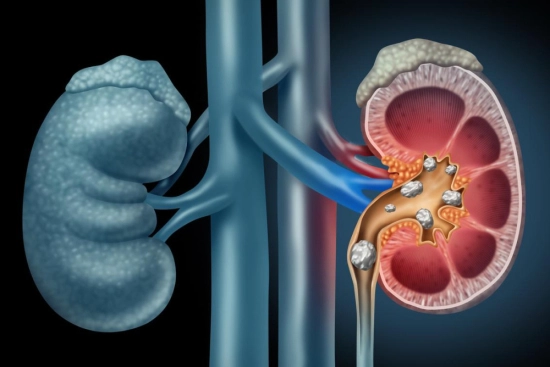
Kidney transplant procedure in Turkey
Kidney transplantation can be performed using two main surgical techniques:
- Laparoscopy: a minimally invasive technique that favors small incisions and offers a faster and less painful recovery.
- Open surgery: a more traditional method that requires larger incisions and is generally reserved for complex cases or when laparoscopy is not possible.
After removal, the kidney is immediately placed in a special preservation medium and transported immediately to a transplant center. Once there, it is implanted in a patient with a compatible immunological profile.
To minimize the risk of rejection, the recipient receives immunosuppressive treatment before and after the operation. These drugs, essential to the transplant's success, prevent the recipient's immune system from recognizing the new kidney as a foreign body. Although they are usually given for life, the doses can be adjusted as the patient's condition progresses.
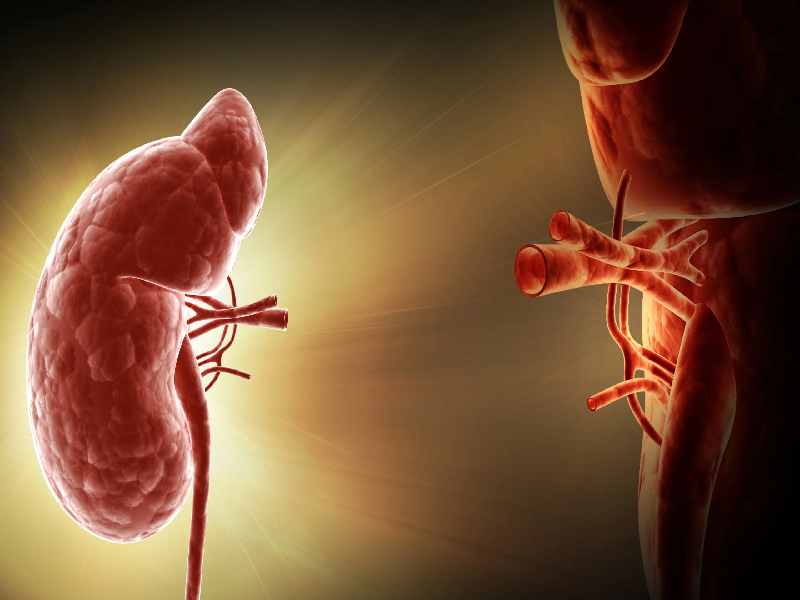
Postoperative process of kidney transplantation
A kidney transplant is a major turning point in a patient's life. After the operation, a hospital stay of about ten days allows for close monitoring of the patient's condition. Once at home, regular visits to the nephrologist, initially every three weeks, ensure personalized follow-up tailored to each patient's progress. The frequency of these visits gradually decreases as recovery progresses.
These visits are essential to ensure that the new kidney is functioning properly, to adjust treatment if necessary, and to detect any signs of rejection or complications early on. Additional tests, such as blood tests and ultrasound scans, are performed regularly to assess the patient's kidney function, medication tolerance, and general well-being.
Kidney transplantation allows many people to regain their lost autonomy and freedom. This procedure, which requires close cooperation between medical teams and patients, offers a new horizon for people suffering from chronic kidney failure.
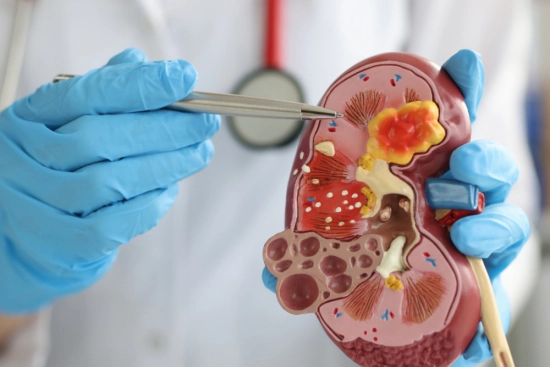
Risks of kidney transplantation
Although kidney transplantation is an important therapeutic option, it carries risks that must be carefully evaluated.
Graft rejection is the most feared complication. The recipient's immune system identifies the transplanted organ as foreign and attempts to destroy it.
In addition to this risk, the surgical procedure itself can lead to complications such as
- Bleeding: Bleeding may occur, sometimes requiring additional procedures.
- Thrombosis: The formation of blood clots can block the blood vessels of the new kidney, impairing its function.
- Urinary complications: Urethral obstruction may occur, affecting urine flow.
- Infections: Immunosuppressive treatment, essential to prevent rejection, increases susceptibility to infection. These infections may affect the surgical site, the transplanted kidney, or other parts of the body.
- Cardiovascular complications: High blood pressure and heart rhythm problems are common risks after kidney transplantation.
Carry out your kidney transplant with Turquie Santé
With Turquie Santé, you choose medical excellence for a kidney transplant at a fair price. Our platform allows you to quickly communicate with recognized nephrologists in kidney surgery.
We work closely with the best kidney surgeons & hospitals in Turkey.
Benefit from personalized support and exclusive discounts on your treatment.
We take care of all the logistics, from booking appointments to organizing your medical stay in Turkey.
Share this page
The graft for the renal transplantation surgery must be a relative donor's kidney. The donor must also be genetically compatible with the patient.
The conditions for donating a kidney are:
- Not to have reached the age of 60;
- To be related by blood with the patient;
- Not to have chronic diseases;
- Not be obese or overweight.
One week for the donor and two weeks for the receiver.
After the kidney transplant, the patient returns to normal life. On average, the lifespan of a transplant is 10 years. After that, the patient can be re-transplanted.
Turkey's kidney transplant success rate is 97%.
As paired organs, a kidney donor can lead a normal life and survive with only one kidney. Since the donor has undergone meticulous medical examinations, the danger associated with a donation is extremely low. Indeed, the donors had no significant clinical repercussions.
The amount of sugar, protein, or potassium you can eat after a kidney transplant is very often unlimited. You may be advised to drink plenty of water and avoid foods high in cholesterol or fat. You should also avoid drinking alcohol.
Transplant rejection usually appears during the first months after the transplant. Symptoms that indicate the presence of acute rejection are: general malaise, tachycardia, fever, nausea, vomiting, and, in the most severe cases, clinical signs of heart failure or reduced urine output.
In the case of a kidney transplant where the waiting list is long, the selection of the recipient is made according to the priority of the following objective criteria:
- Emergency
- Age
- Hyperimmune
- HLA immunological compatibility
- Waiting time
The phenomenon of rejection occurs when the immune cells of the donor, recognized as non-self or foreign, are attacked and destroyed by the cells of the body's defense system (immune system) of the transplanted person (recipient).
